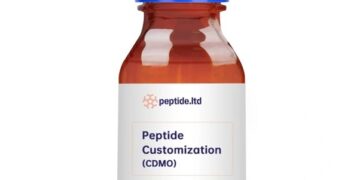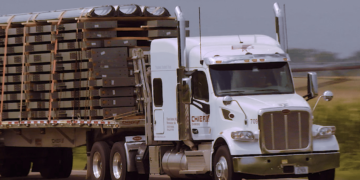The healthcare industry is constantly evolving, with new technologies and regulations shaping the way medical professionals provide care. One aspect that remains crucial, however, is the need for a robust commercial security system to protect patients, staff, and sensitive information. Healthcare facilities face unique challenges when it comes to security, and it’s essential to have a system in place that addresses these concerns effectively. In this comprehensive guide, we’ll explore the importance of commercial security systems in healthcare, the key components of a successful system, and how to choose the right solution for your facility.
-
The Importance of Commercial Security Systems in Healthcare
Healthcare facilities are responsible for protecting the well-being of their patients, as well as the privacy and security of their personal information. With the rise of cyber threats and physical security risks, it’s more important than ever for healthcare organizations to invest in a comprehensive commercial security system. A robust security system not only safeguards patients and staff but also helps maintain compliance with industry regulations, such as the Health Insurance Portability and Accountability Act (HIPAA).
Moreover, a secure environment fosters trust between patients and healthcare providers. Patients must feel confident that their personal information and well-being are in good hands, and a strong security system is a crucial factor in building that trust.
-
Key Components of a Successful Security System
A successful commercial security system for healthcare facilities should include several key components that work together to provide comprehensive protection. These components include:
- Access Control
Access control systems help manage who can enter your facility and restrict access to sensitive areas, such as patient rooms, medication storage, and data centers. Some common access control solutions include key card readers, biometric scanners, and mobile access control. By limiting access to authorized personnel, you can reduce the risk of unauthorized entry and protect both patients and staff.
- Video Surveillance
Video surveillance is an essential component of any commercial security system, allowing you to monitor your facility in real time and capture footage for review in case of an incident. Cameras should be strategically placed throughout your facility, including entrances, exits, hallways, and other high-traffic areas. Video surveillance can act as a deterrent for potential criminals and provide valuable evidence in the event of a security breach. - Intrusion Detection
Intrusion detection systems help protect your facility from unauthorized entry by alerting security personnel when doors, windows, or other access points are breached. This can include door and window sensors, glass break detectors, and motion sensors. A well-designed intrusion detection system can help prevent break-ins and other security incidents before they happen. - Emergency Communication
In the event of an emergency, such as a fire or active shooter situation, it’s crucial to have a reliable communication system in place to alert staff, patients, and first responders. Emergency communication systems can include mass notification systems, intercoms, and panic buttons. These tools help ensure that everyone in your facility is informed and can take appropriate action during a crisis. - Cybersecurity
Healthcare facilities are often targeted by cybercriminals due to the sensitive information they store. To protect your patients’ data and maintain compliance with industry regulations, it’s essential to implement robust cybersecurity measures. This can include firewalls, antivirus software, encryption, and employee training on cybersecurity best practices.
- Access Control
-
Security Management for Healthcare Facilities
Managing the various components of a commercial security system can be complex, especially for large healthcare facilities. It’s essential to have a centralized security management system that allows you to monitor and control all aspects of your security system from one platform. This can include access control, video surveillance, intrusion detection, and emergency communication systems. Centralized security management helps ensure that your facility is consistently protected and allows for quick response in the event of a security incident.
-
How to Choose the Right Security Solution for Your Facility
When selecting a commercial security system for your healthcare facility, it’s essential to consider the unique needs and challenges of your organization. Some factors to consider include:
– The size and layout of your facility
– The level of security required for various areas within your facility
– The types of security threats most likely to impact your organization
– Your budget and available resources for security implementation and maintenance
– Compliance with industry regulations and standards
It’s also important to work with a reputable security provider that has experience in the healthcare industry. They can help you design a customized security solution that meets the specific needs of your facility and provides comprehensive protection for your patients, staff, and sensitive information.
Conclusion
Investing in a robust commercial security system is essential for healthcare facilities to protect patients, staff, and sensitive data. By implementing a comprehensive system that includes access control, video surveillance, intrusion detection, emergency communication, and cybersecurity measures, healthcare organizations can create a secure environment that fosters trust and maintains compliance with industry regulations. With the right security solution in place, healthcare facilities can focus on providing the best possible care for their patients, knowing that their security needs are well-managed and under control.






























